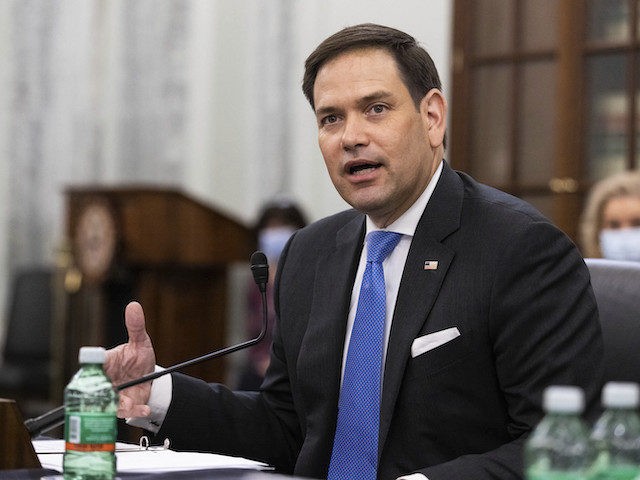Sen. Marco Rubio (R-FL) spoke to the Republican Study Committee on Wednesday and explained why the globalist and libertarian hands-off approach to large business is dangerous.
“I’m not against big corporations. I think they’re an important part of our economy,” Rubio said. “But I’m not blind to the fact that their CEO considers themselves a citizen of the world. And for them, it doesn’t matter to make a billion dollars employing someone in Indiana or a billion dollars employing someone in India.”
Rubio’s term for his business and economic worldview is coined “common-good capitalism,” which contends big business has interests outside the American worker and, therefore, must not be allowed to manipulate the free-market system to enjoy competitive advantages by special laws to increase profit at the expense of small business and the American worker.
The Washington Examiner reports, “Rubio pointed to current levels of unemployment and reports of people declining to go back to work because of increased benefits from the government as an example of his point.”
“It cannot be the sort of traditional, ‘The market by itself will always be right,'” Rubio said.
“That was probably true when what was good for a big corporation was automatically good for America,” Rubio said of the changing nature of big business.
“But when it reaches an outcome that’s bad for Americans or bad for America, then our challenge is to determine: What is the proper role of government? Not cronyism,” Rubio continued. “Not, ‘Let’s put a bunch of money in this industry because a friend of mine from college runs it,’ or ‘they hired the right lobbyist.’ But what are the right industries that America can partner with?”
“The challenge we have as conservatives, as Republicans, is we believe in the market. The market is the most efficient allocator of capital the world has ever known and the biggest eradicator of poverty in the world has ever known,” Rubio said. He continued:
But what happens when the market outcome, as occurs from time to time, the most efficient outcome, is not in our national interest or runs counter to our national security? Because the market is pretty clear it is more efficient to buy basic pharmaceutical ingredients from China.

COMMENTS
Please let us know if you're having issues with commenting.